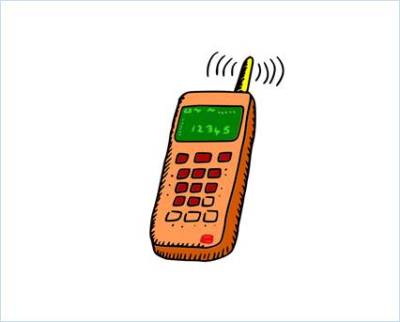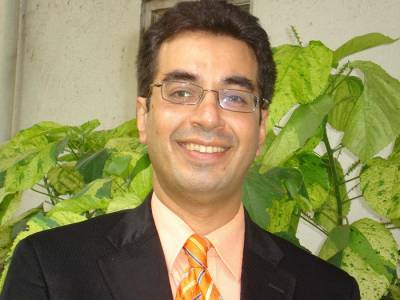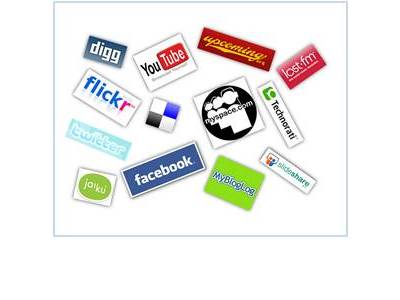Perspective | Bulk SMS banned; Govt could have used discretion
The recent ban on bulk SMSes by the government following violence in Assam and the exodus of north-eastern people has not gone down too well with the providers and users of bulk SMSes particularly SMS marketing companies, advertisers and over one lakh SMEs which rely and use it for digital marketing. Says Dr. Subho Ray, President, The Internet and Mobile Association of India [IAMAI], “the association strongly feels that the current ban on commercial or promotional messages sent by registered telemarketers should be lifted immediately. Rather than imposing bans or restriction, the government should use the services of bulk SMS providers in order to send out positive messages during normal as well as during times of crisis.”
Speaking to Adgully, B G Mahesh, Founder & MD, Oneindia.in said, “as most bulk SMS providers are registered with the government. All the government had to do was to tell these bulk providers about what kind of messages couldn't be sent out. If they did send out hate message inspite of the warnings then the government could always take action.”

What is surprising is that SMSes from airport cab services, airlines too were blocked. It has also effected the medical and education type of sectors a lot. It was bad planning. The government reacted as if India has been attacked by its neighbours and there is a war like situation. The government should have realized that blanket ban is not in the public interest. Banning communication systems in such a critical time can worsen the law-and-order situation rather than improving it. The lack of truthful news messages creates an information vacuum which increases anxiety and drives people even more toward unreliable rumors.
Every resident of India is with the government to keep the security of the country intact. No one is keen on receiving a SMS at the cost of keeping the borders unsafe. Indians are not that unreasonable. But the industry is asking whether it so difficult for the government to track down the actual sender of the SMS? While we are talking of sending a mission on Mars, next year and will control remote satellite millions of miles away from the earth from our base control stations here and we do not miss an opportunity when it comes to beating our drums all around the world about our technical superiority be it arms or information technology, can't the SMS be traced backwards? Bulk SMS consumers and providers feel that the government could have s nailed the bunch of goons. Given to know that there are proxy etc and people can fake from the number of the SMS, the government should have at least tried to expose the senders.
Says Ashok Lalla, Digital marketer and Founder & author of 'The Future of Digital for Brands', “simply banning messages for 15 days seems like a knee-jerk myopic reaction. What happens on day 16? Will the problem go away? While mass reach maybe restricted, even sending mass messages via BBM and other group messaging services can serve to fan fear and spread news. The root cause won't really be addressed via the ban.”
There are some who are taking a balanced view also. According to Ankur Warikoo, CEO, Groupon India, “we understand the sensitivity of the ban and fully comply with any initiative that aims at reducing unsolicited SMSs. We follow all movements that are pro-customers because for us the fact that we will be potentially exploited to spam as a personal customer is not a very welcoming statement. We as a business send messages to those who have willingly subscribed to our alerts and any directive from the government that tries to reduce unsolicited form of communication is a welcome change.”
So while the industry debates what needs to be done next?
At present there are more than one lakh enterprises, mainly SMEs that are dependent on this media for customer outreach which are sent out by over 3,000 registered telemarketers based on rules set by TRAI. In addition, they are most firmly controlled and monitored and hence have no room for misuse. The association feels that lifting of the ban with immediate effect will help the flow of essential messages and communication unabated. Says Dr Rao, “the members would be more than willing to send out free bulk messages to spread correct information and general goodwill across the country.”
Agrees Beerud Sheth, Co-Founder & CEO, SMS Gupshup, “SMS can help improve law-and-order. SMS is a powerful tool for delivering instant communication to millions of people. Law-and-order agencies can, in fact, use this system to deliver good quality information that will help dispel and counter rumors, helping calm a jittery public. The ban is a lost opportunity for the agencies.” The industry proposes a SMS Monitoring System to help the law-and-order agencies to instantly filter sensitive messages during a crisis. Furthermore, the system can help the agencies do real-time monitoring of suspicious parties spreading malicious rumors.
Says Mahesh, “government now needs to work on confidence building measures including taking action against the Parliament and Mumbai attackers. That will soothe our pain a lot more than blocking SMS.” Perhaps strengthening Know Your Customer (KYC) norms for pre-paid mobile connections may help better track potential trouble makers who spread rumours through bulk messages via pre-paid connections. “Smart” filtering is the right alternative. The government should ban just the bad messages, not all messages. Content filtering tools are available with the industry to prevent messages that spread rumors and fan hatred. “Just as it doesn’t make sense to jail everyone to prevent the one per cent mischief-makers, it doesn’t make sense to ban all messages for the 0.001 per cent rumors,” says Sheth.
Adds Lalla, “the ease of access to digital technology with mass reach at low cost makes it easy to spread messages, including rumours. Apart from government imposed and legal restrictions, self regulation is also important. Else, the freedom will from time to time require curbs such as these.”
As for how the ban is effecting SMS marketing companies, says Warikoo, “SMS marketing has become one of the predominant marketing tools for SMEs in India. I can only comment on the effect it will have on our business as I would not have enough sense about the marketing mix of other companies.” He further adds, since majority of our deals are marketed via emailers with SMS marketing accounting for about 8-10 per cent of our overall marketing exercise. Therefore this restriction has just impacted us at a micro level. Given the fact that it is only a limited period ban which has now been increased to 20 SMs per day, we don’t think this warrants other alternatives to cover up our overall SMS marketing.” Enterprising business owners are also likely to look at other ways to reach potential customers.
It now remains to be seen whether the ban is lifted post August 31 or continued in some form or other. If that happens then the providers and users will start feeling the pinch far more. At the moment all are waiting for the deadline to pass.
Media
MINUTES TO READ
















Share
Facebook
YouTube
Tweet
Twitter
LinkedIn